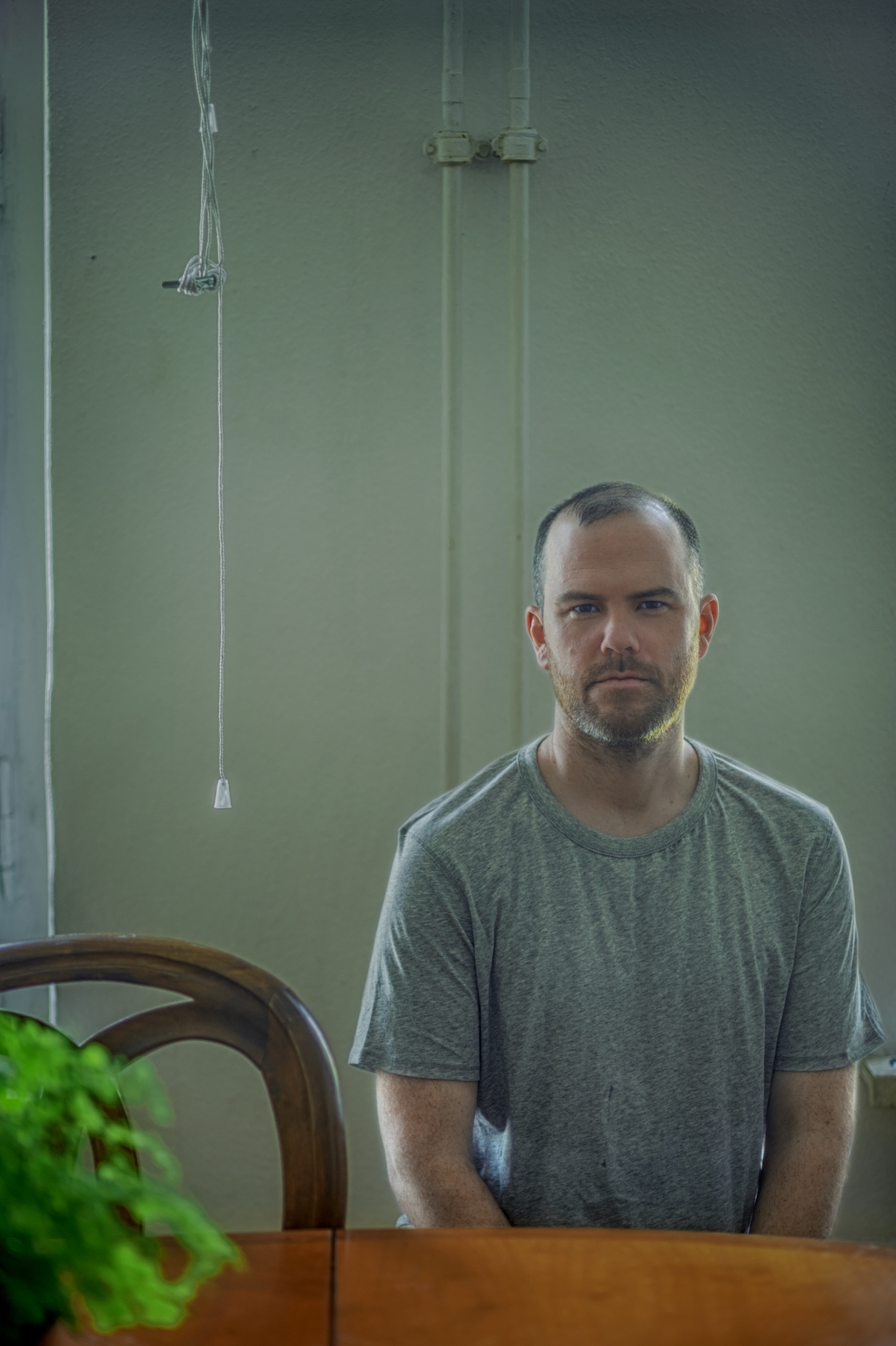While we only got to know Brendan Dougherty’s pure musical output so far—like his LP Sensate on Entr’acte from 2016 or when he played live at Klub Kegelbahn the same year—, the Philadelphia-born artist has also been active in the performance art scene. Most recently, he participated in the Supernova festival at Hebbel Am Ufer in early March 2018. To change our ignorance regarding these practices and to get some context for the new album ourselves, Mathis Neuhaus spoke with Dougherty via mail. Find the conversation below alongside all the tracks from Economy and Failure made publicly so far—now also including the record’s B-side opener “Red Dyer”.
https://soundcloud.com/zweikommasieben/sets/brendan-dougherty-economy-and
Mathis Neuhaus You describe yourself as a sound artist, how does your production work—like for example with the new LP Economy and Failure—influence the installations and other artistic outputs and vice versa?
Brendan Dougherty I began working more with non-musical artists around 12 years ago. Up until that point, I had been creating things that were very focused on the musical material without any greater context or purpose aside from the specific musical gesture. These musical gestures could range from noise to free-jazz to experimental music. Working with choreographers and visual artists put the music in a context which gave it a clearer purpose, something to serve and support, or sometimes also oppose. When I started working on music on my own again, I found it helpful to be aware of the context and references that electronic music can have, working within a frame, or at least being cognizant of the frame.
MN Collaboration is quite frequently in your artistic practice, then. For those collaborations, do you seek out people who are close to your own artistic orbit or a bit further detached?
BD I was very lucky to fall into a scene of artists in Berlin who are working in a relatively abstract way; using their work to ask questions about how performances are made and consumed and what role the body and the identity of the performer can play in a performance. I always thought these questions should be applied to musical performances as well and was therefore happy to engage in an artistic dialogue. Also, I was working with people like Jeremy Wade, Ian Kaler and Meg Stuart who have given music an important role in their work, providing it with a lot of room to experiment in the way it functions or can have an impact.
MN The press release refers to the coming together of your new LP as a rather nomadic affair and I would like to focus on this aspect for a bit: Was it a conscious decision to not rely on a specific place for producing Economy and Failure, but many?
BD No, the building which houses the studio I had been using for the past ten years was sold right after I released my last LP Sensate. Although I have always worked a lot while traveling, this was the first time I did not have a studio at hand to go back to. On one hand, this is a very sad trend in Berlin; most artists cannot afford to have a working space near where they live anymore. But on the other hand, I also created things that I probably would not have from the comfort of my familiar studio space.
MN Did you have any criteria for seeking out the environment for your production work?
BD For the most part, it was wherever and whenever I have time, my laptop and my headphones.
MN What is the specific appeal of working literally anywhere? And can you still, retrospectively, tell where which track was produced. Or put differently: did the environment influence the outcome?
BD I think some of the music could only have been created in the space and time where I was working; be it airports, bakeries or kitchen tables.
MN Did this way of working make it easier or harder for you to be productive?
BD Perhaps harder to concentrate, but If I was able to do that, usually the outcome is more interesting. As I mentioned before, I can remember exactly where I was when I made some of the tracks—a hotel lobby in Zagreb or the Brussels airport come to mind—, but most have lost their attachment to the space and became entities on their own.
MN The LP touches upon trance elements, techno patterns and ambient textures and is coined by a dialectic of building up tension and releasing it: is this an adequate representation of your musical influences?
BD Yes, I think tension and release play an important role, but not necessarily in their connection to techno or what is usually coined as techno. The connection that maybe resonates more is playing drums or working with contemporary dance.
Brendan Dougherty’s Economy and Failure will be released via our publisher Präsens Editonen this Friday, June 1st 2018. It can be ordered over here. To celebrate the record’s release, we will host a night at OHM Berlin on Wednesday 30th 2018. All details here respectively here.
Furthermore, Dougherty will play the Präsens Editionen showcase at Balance Club / Culture Festival in Leipzig on Thursday 31st 2018. Details here.
